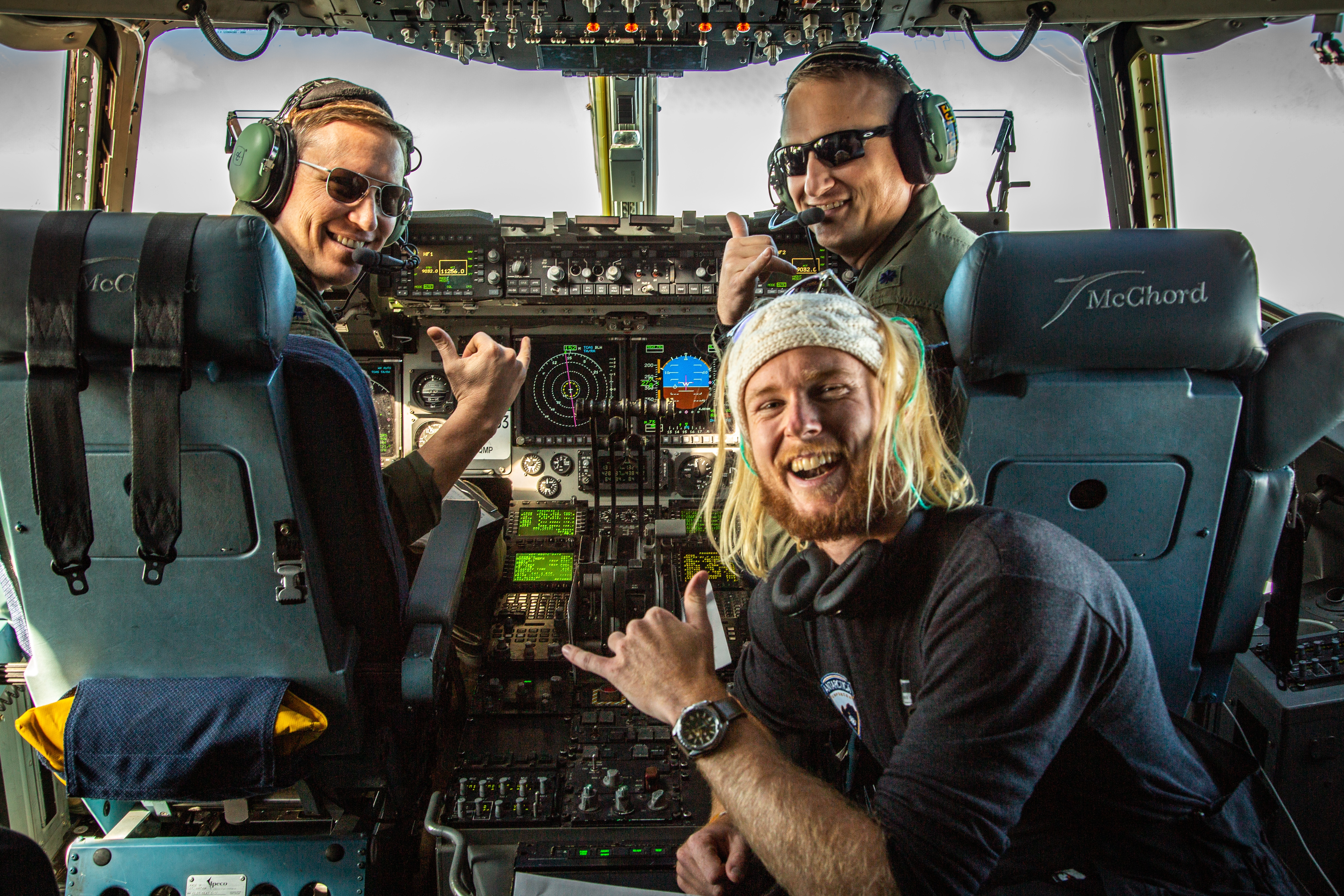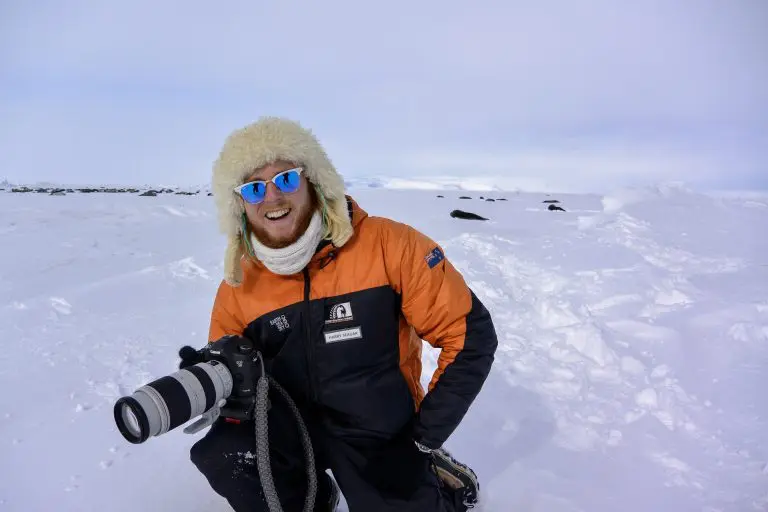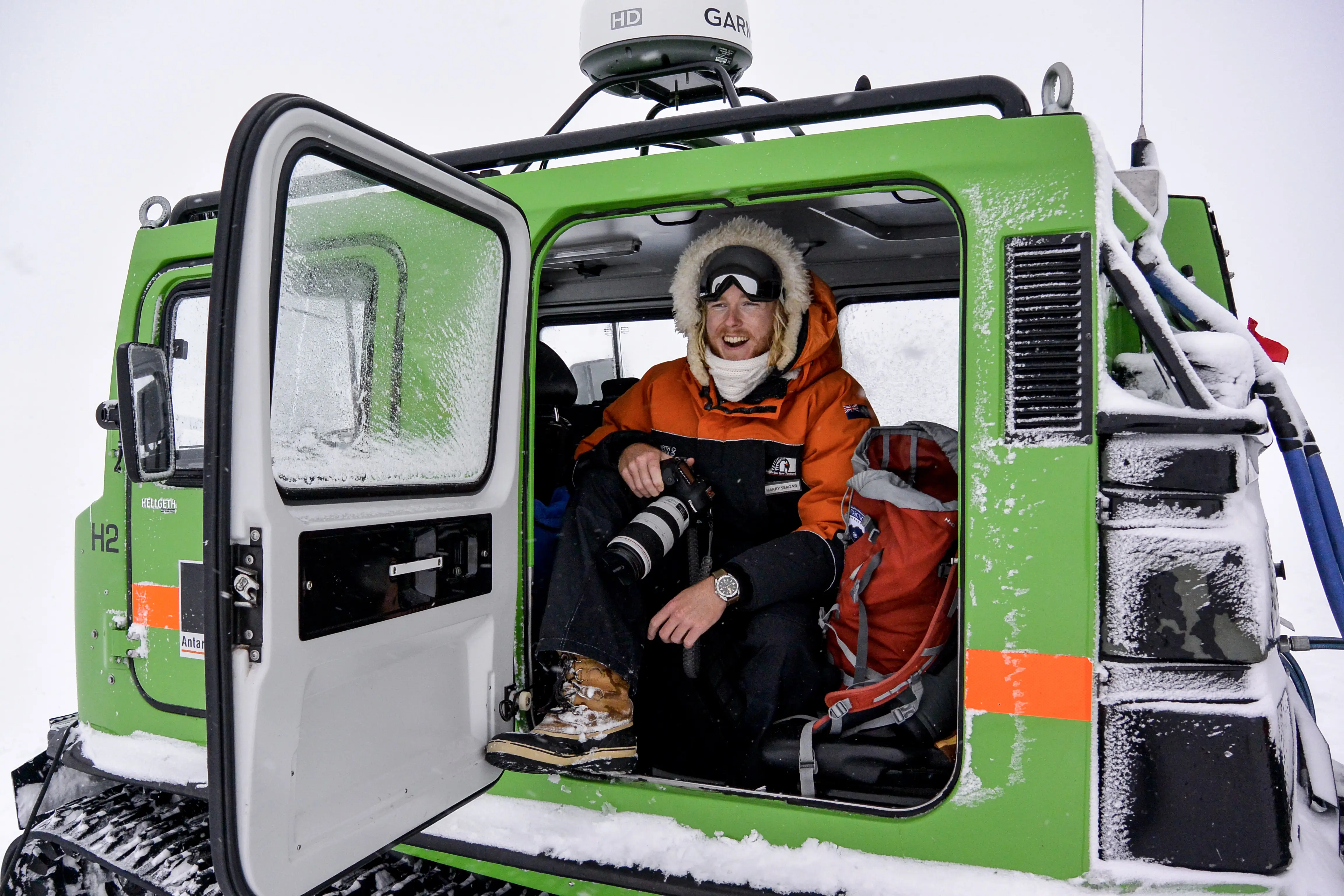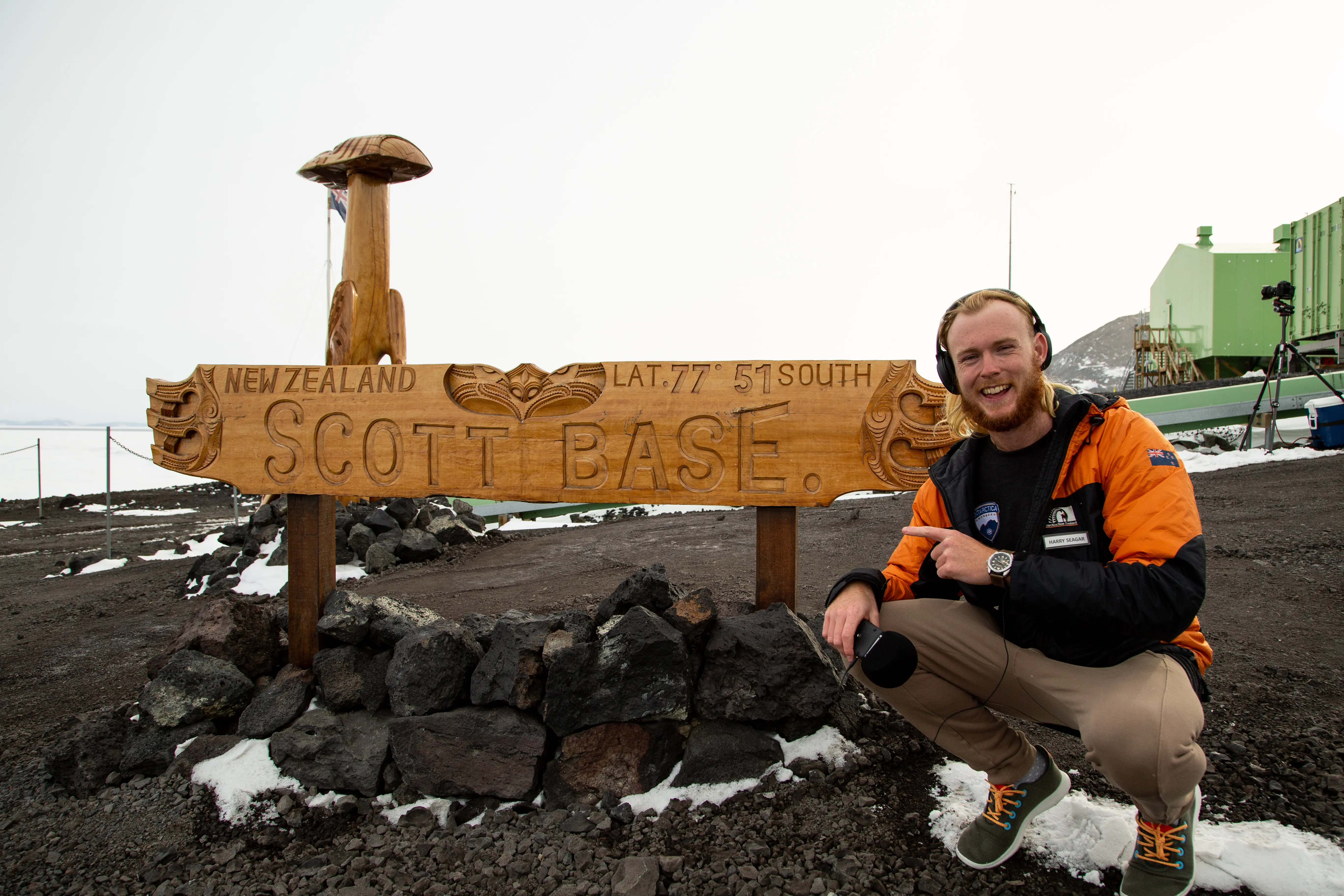For all the staggering sights of Antarctica – the vast white wilderness and its unique wildlife; summer days with no end – it is the sounds of the frozen continent that remain with Harry Seagar.
It was the commotion of the wind in particular that struck the Blake Ambassador. Antarctica is, after all, the windiest continent on the planet.
Soon after he arrived on the ice, Seagar was compelled to capture the wind, as it howled and whistled through the Antarctic Field Training camp – polar tents pitched in sea ice where newbies to Scott Base live for the first two days of their expedition.
“It was 2am and everyone else had gone to bed, but I was too overwhelmed by everything,” the 21-year-old says. “It was blowing a gale outside, and snowing – a white-out – when suddenly I realised where on Earth I was, and it hit me like a slap in the face.
“So I took my recorder outside and taped the wind. It’s one of the most relaxing sounds I’ve ever heard. A truly beautiful sound.”
And it’s the sound that Seagar has used to start his podcast, Antarctica Unfrozen, to “get people in a zen zone, ready to take it all in.”
What Seagar wants listeners to absorb is the simplified science around the icy continent, and its influence on the planet’s future.
During his two-week stay in Antarctica, Seagar embarked on an environmental multi-media project to communicate what’s going on at Scott Base, New Zealand’s Antarctic research station.
“The idea behind Antarctica Unfrozen is to unfreeze some of the critical science, history, contemporary culture and adventure that the icy continent is notorious for,” Seagar says.
The 10-part podcast series is the major element of his project, based on “yarns with the passionate people who’ve dedicated their lives to working in and understanding Antarctica.
“One of the challenges Antarctica faces is that most people know it as this mystical place, and that’s where it stops. They don’t realise how much life is down there, and what a huge role it plays in our climate and our oceans.
“I wanted to create a dialogue for the part of the population who don’t know a lot about science. It’s so important for people to have a base knowledge of how our world works and understand the global importance of Antarctica.”
Seagar was chosen as this year’s Blake Antarctic Ambassador from more than 100 applicants by the Sir Peter Blake Trust and Antarctica New Zealand.
Antarctica was the first destination in Sir Peter Blake’s “five year” global environmental expedition which began in 2000, looking for any retreat of the Antarctic ice shelf. His goal was to “educate and encourage as many people as possible to want to make a difference”.
It’s an ambition that Seagar shares. He’s quick to point out that he’s not a scientist – he recently completed studying commerce at the University of Canterbury, majoring in Strategy and Entrepreneurship.
“It’s not simply about starting a business, but practising entrepreneurship to create value,” Seagar says of his degree.
His projects so far have revolved around environmental and social change. He partnered with two environmental charities to create a limited edition wine label, Pride by Cliff Edge Wines, and successfully encouraged food outlets on the university campus to replace single-use plastic cutlery with wooden utensils.

Seagar’s Antarctic mission centred on helping people gain a better understanding of how the world works and the impact humans have on it.
“What I came to realise is that the whole point of Antarctic science is trying to reduce the uncertainty around all the factors and numbers associated with the melting ice. It’s the role of our scientists at Scott Base to take the numbers to policymakers, and try to make a difference,” he says.
Most of Seagar’s interviews for the podcast were done at Scott Base, but he spent four months before the trip “dreaming, brainstorming, designing, calculating and learning”.
“I was lucky to talk to some incredible people – each of them involved in their own work. Antarctica is such a vast topic.”
The podcast episodes focus on marine ecosystems, exploration, political representation, work life at Scott Base, and, of course, climate change and the relevant science being carried out in Antarctica.
Seagar spoke with climate campaigner and University of Canterbury glaciologist Dr Dan Price, who had just returned from an exhausting six-week, 1100km crossing of the world’s largest body of floating ice – the Ross Ice Shelf.
It was Price’s second expedition to the West Antarctic Ice Sheet, to collect data that will give scientists clues as to how the ice sheet and ice shelf responded to climate changes in the past, so they can predict how this part of Antarctica will react to a warming world.
“That’s something I’m trying to raise more awareness around. Antarctica is the largest ice cube in the world by a long shot, and it plays a huge, vital role in the whole earth system. It’s what we depend on to survive.”
In the podcast, Seagar also talks with Professor Gary Wilson, a Blake Leader and vice president of the Scientific Committee on Antarctic Research, who led the Ross Ice Shelf expedition team.
“His main message was that as humans, we’re playing with this system that is so much greater, older, wiser and more powerful than ourselves. And we shouldn’t be playing with it,” Seagar says.
Other episodes explore the ‘locals’ who live near the base – the likes of emperor penguins and killer whales.
“We were surrounded by wildlife. Seals hung around on the ice shelf just outside the base, and Adelie penguins would cruise by, popping in to say hi,” he says.
“One of the highlights for me was going whale watching at midnight. We’d walk around Observation Hill and see the sound and all of the sea ice that had broken up. We were lucky enough to see killer whale pods swimming through a glistening ocean.”
During his stay in February, Seagar never saw the sun set.
“Although my mission was over two weeks, it actually felt like one really long day,” he says. “The sun was getting low on the horizon, but the light barely changed. I had this constant energy level that didn’t change if it was 11am or 3am.”
Seagar hopes the Antarctica Unfrozen podcast, and a wealth of stunning photography and video, will connect people with “this foreign and distance land” that they would otherwise never experience. “You are never able to relate to it, if you can’t experience it,” he says.
“If the podcast makes people think about Antarctica, let alone make changes to the way they live, then it’s been a success in my eyes.”




